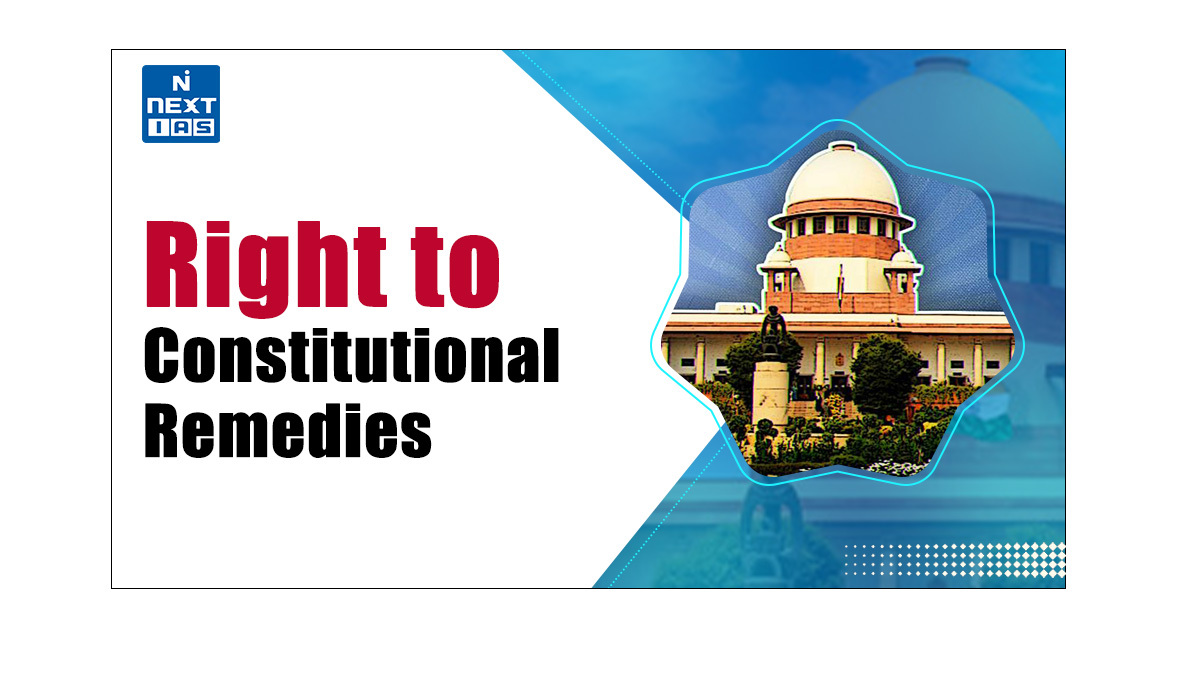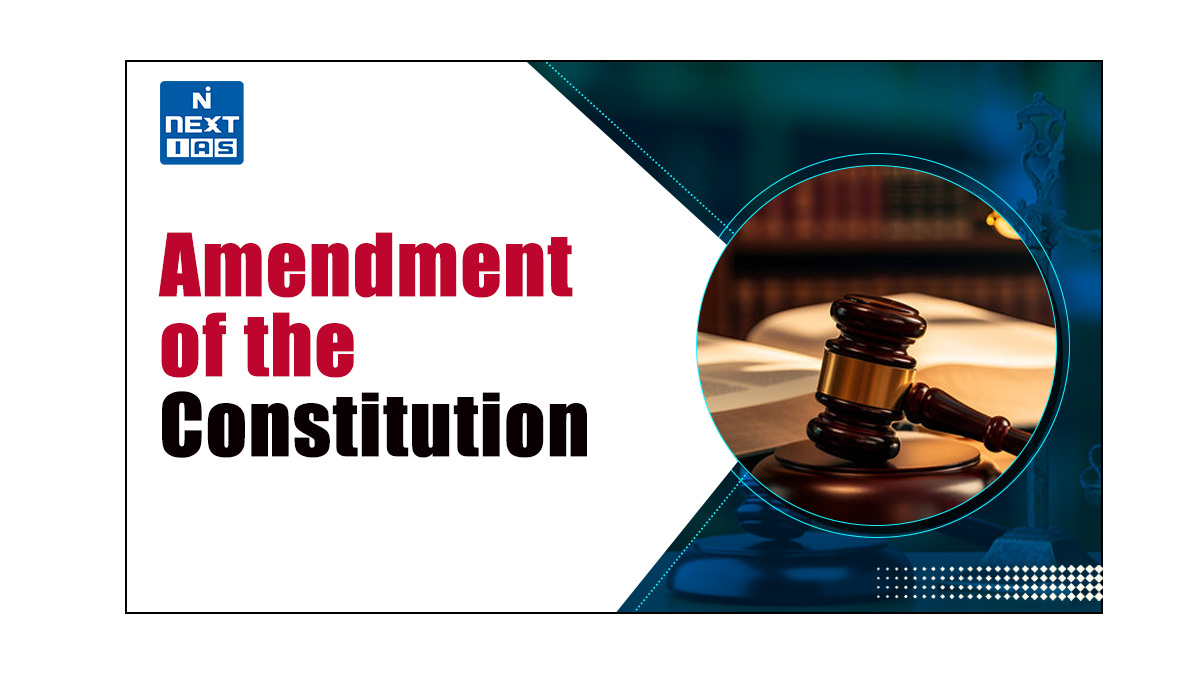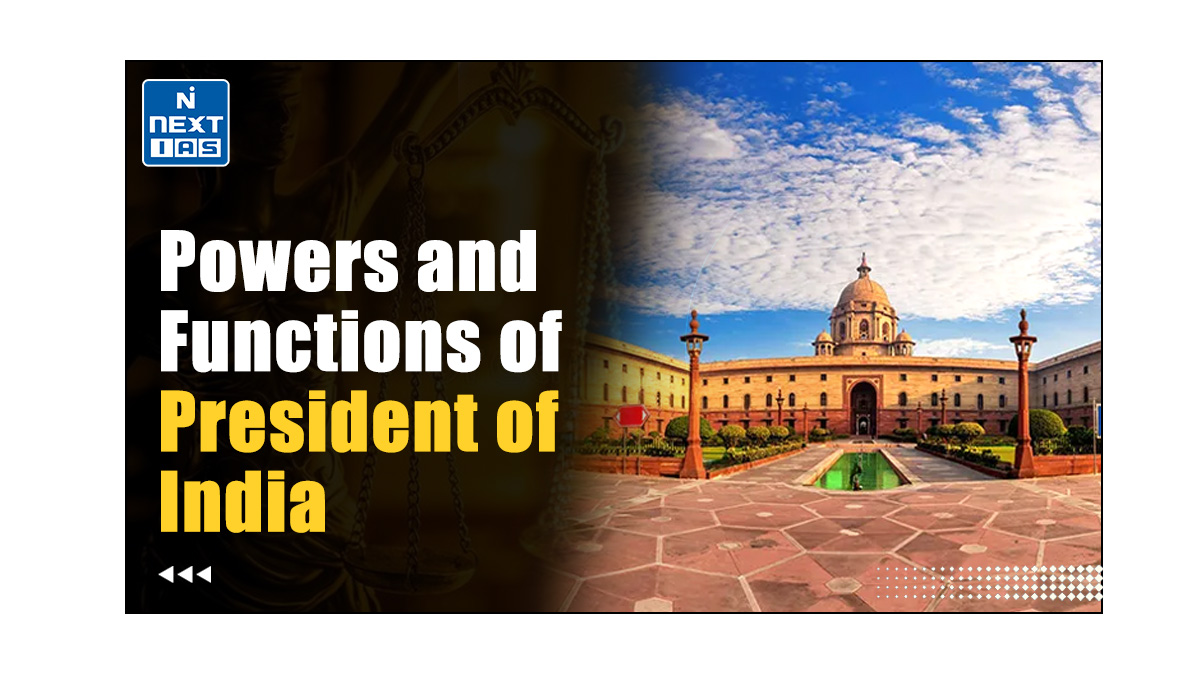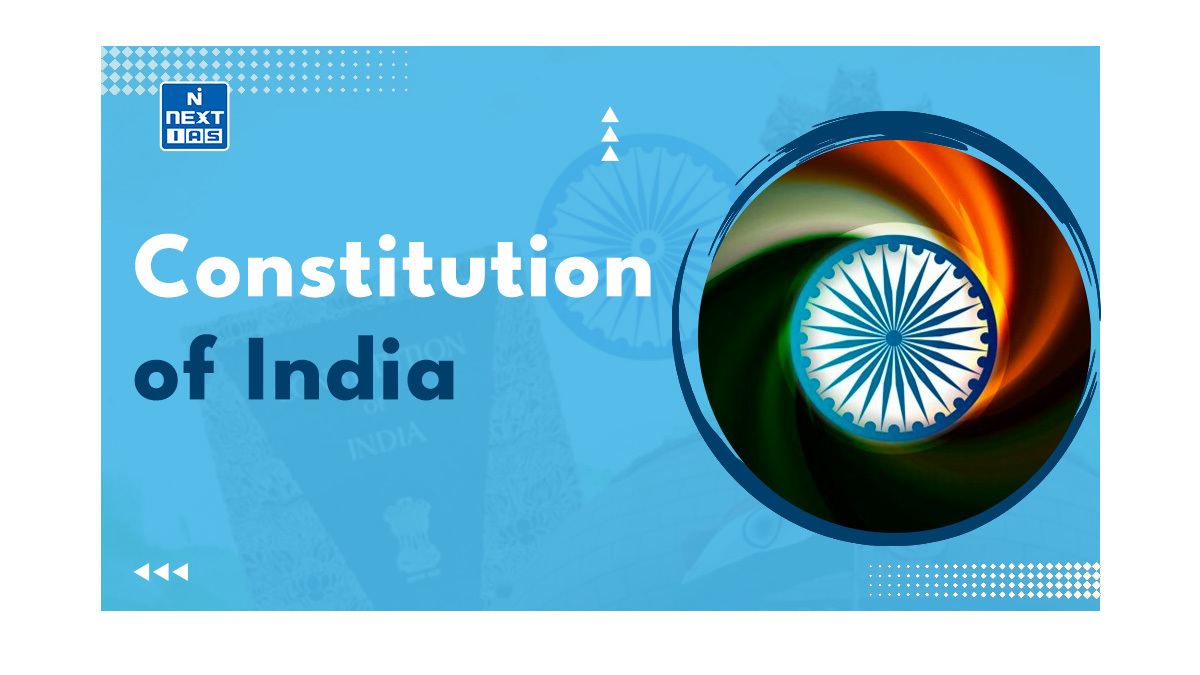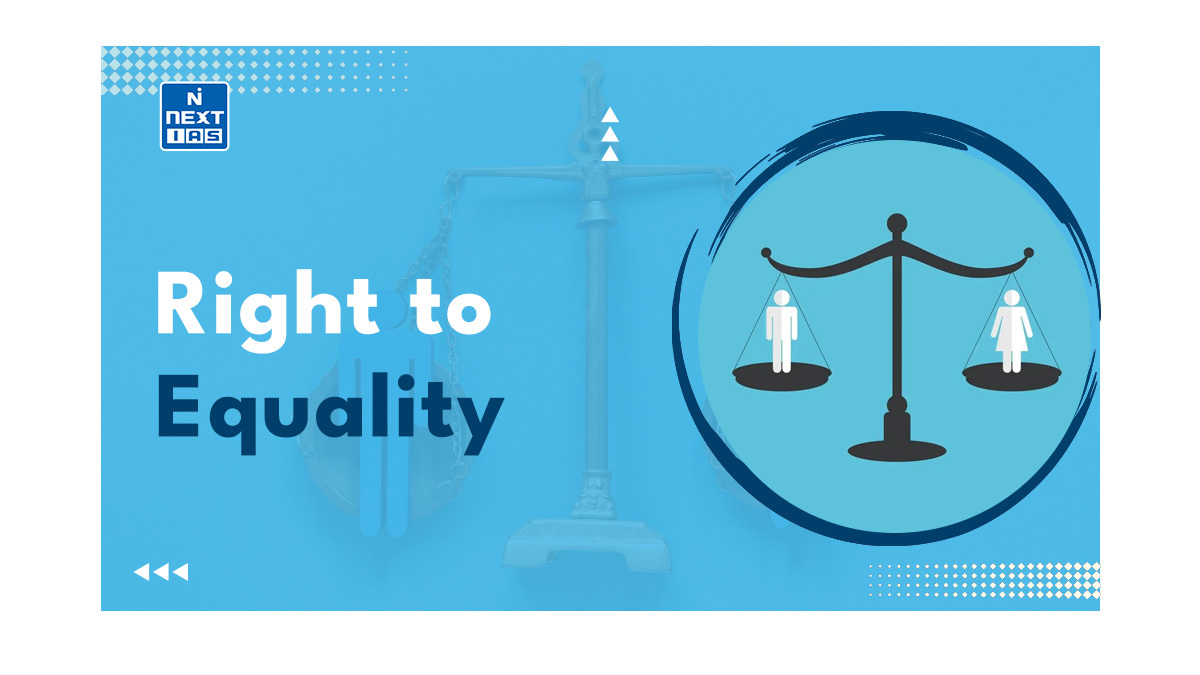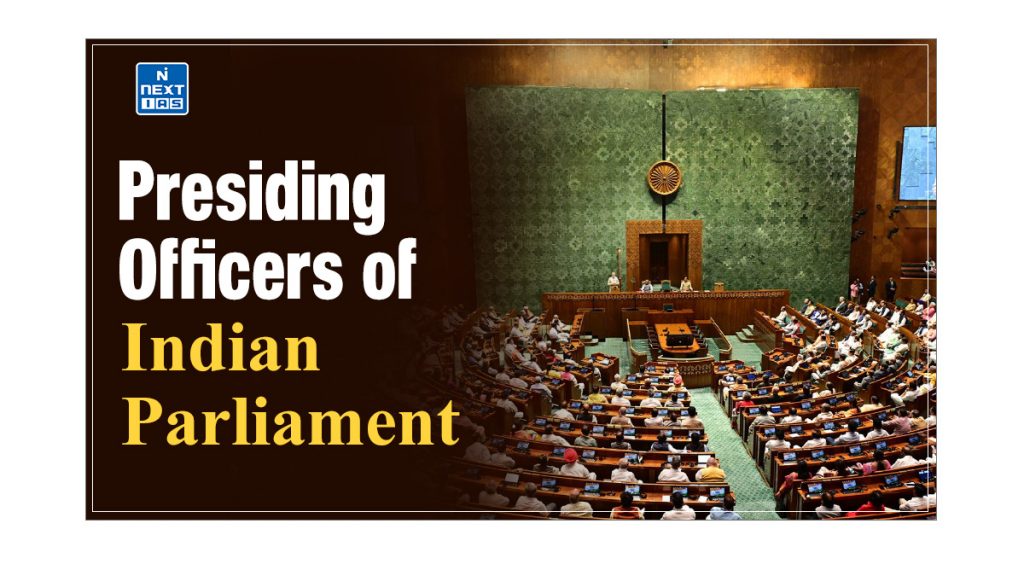
Presiding Officers of Parliament play a crucial role in ensuring the smooth functioning of legislative bodies in parliamentary systems around the world. By upholding the integrity and dignity of parliamentary debates and procedures, presiding officers serve as guardians of democratic governance. This article aims to study in detail the Presiding Officers of Parliament, their roles & responsibilities, and their significance.
Who are Presiding Officers?
- In the context of the Parliamentary System, the Presiding Officers refer to the officials who oversee and regulate the proceedings of the Houses of Legislative Body such as Parliament in the case of India.
- The Presiding Officers are responsible for upholding parliamentary rules, maintaining order, managing debates, and conducting the legislative process as per the established procedures within their respective houses of the legislative body.
- Overall, their role is to ensure that the legislative body functions smoothly and efficiently.
Presiding Officers of Indian Parliament
- The Indian Parliament consists of two Houses – the Lok Sabha (Lower House) and the Rajya Sabha (Upper House).
- Accordingly, each House has its own Presiding Officers to ensure smooth conduct of the legislative process.
The presiding officers of both houses of the Indian Parliament have been discussed in detail in the section that follows.
Presiding Officers of Lok Sabha
- The Presiding Officers of Lok Sabha primarily include – the Speaker of Lok Sabha and the Deputy Speaker of Lok Sabha.
- Additionally, the Lok Sabha also has a Panel of Chairpersons, any members of which assume the role of Presiding Officer in the absence of both the Speaker and the Deputy Speaker, ensuring the continuity of parliamentary proceedings.
Speaker of Lok Sabha
- The Speaker is the Presiding Officer of the Lok Sabha or the Lower House of Parliament of India.
- The Speaker is also the constitutional and ceremonial head of the Lok Sabha.
- He/she is responsible for maintaining order and decorum in the house, conducting its business, and ensuring that the legislative process is carried out smoothly.
- Additionally, he/she represents the Lok Sabha in its relations with the President of India, the Rajya Sabha (the Upper House), and other external bodies.
Read our detailed article on the Speaker of Lok Sabha.
Deputy Speaker of Lok Sabha
- The Deputy Speaker serves as the Second-in-Command Presiding Officer of the Lower House of Parliament of India – the Lok Sabha.
- In the absence of the Speaker, the Deputy Speaker assumes the role of the Presiding Officer of Lok Sabha and becomes responsible for maintaining order and decorum in the house, conducting its business, and ensuring that the legislative process is carried out smoothly.
Read our detailed article on the Deputy Speaker of Lok Sabha.
Panel of Chairpersons of Lok Sabha
- As per the Rules of Lok Sabha, the Speaker nominates a Panel of not more than Ten Chairpersons from amongst the members of the Lok Sabha.
- Any of the members of the Panel of Chairpersons of the Lok Sabha can preside over the House in the absence of the Speaker or the Deputy Speaker.
- The member, when so presiding over the House, has the same power as the Speaker.
- When a member of the Panel of Chairpersons is also not present, any other person as determined by the House acts as the Speaker of Lok Sabha.
- It is to be noted that if the office of the Speaker and the Deputy Speaker is vacant in the Lok Sabha, a member of the Panel of Chairpersons cannot preside over the House.
- Instead, during such times, the President of India appoints a member of the Lok Sabha to perform the duties of the Speaker temporarily.
| Note: The members of the Panel of Chairpersons of Lok Sabha hold office until a new Panel of Chairpersons is nominated. |
Presiding Officers of Rajya Sabha
- The Presiding Officers of Rajya Sabha primarily include – the Chairman of Rajya Sabha and the Deputy Chairman of Rajya Sabha.
- Additionally, the Rajya Sabha also has a Panel of Vice-Chairpersons, any members of which assume the role of Presiding Officer in the absence of both the Chairman and the Deputy Chairman, ensuring the continuity of parliamentary proceedings.
Chairman of Rajya Sabha
- The Chairman of the Rajya Sabha is the Presiding Officer of the Rajya Sabha or the Upper House of the Parliament of India.
- The Vice-President of India serves as the Ex-Officio Chairman of the Rajya Sabha.
- The Chairman is responsible for maintaining order and decorum in the Upper House, conducting its business, and ensuring that the legislative process is carried out smoothly.
Read our detailed articles on the Chairman of Rajya Sabha and Vice President of India.
Deputy Chairman of Rajya Sabha
- The Deputy Chairman serves as the Second-in-Command Presiding Officer of the Upper House of Parliament of India—the Rajya Sabha.
- In the absence of the Chairman, the Deputy Chairman assumes the role of the Presiding Officer of the Rajya Sabha and is responsible for maintaining order and decorum in the house, conducting its business, and ensuring that the legislative process is carried out smoothly.
Read our detailed article on the Deputy Chairman of Rajya Sabha.
Panel of Vice-Chairpersons of Rajya Sabha
- As per the Rules of Rajya Sabha, the Chairman nominates a Panel of Vice-Chairpersons from amongst the members of the Rajya Sabha.
- Any of the members among the Panel of Vice-Chairpersons can preside over the House in the absence of the Chairman and the Deputy Chairman of Rajya Sabha.
- The member, when so presiding over the House, has the same powers as the Chairman.
- When a member of the Panel of Vice-Chairpersons is also not present, any other person as determined by the House acts as the Chairman of the House.
- It is to be noted that if the office of the Chairman and the Deputy Chairman is vacant in the Rajya Sabha, a member of the Panel of Vice Chairpersons cannot preside over the House.
- Instead, during such times, the President of India appoints a member of the Rajya Sabha to perform the duties of the Chairman temporarily.
| Note: The members of the Panel of Vice-Chairpersons of Rajya Sabha hold office until a new Panel of Vice-Chairpersons is nominated. |
Significance of Presiding Officers of Parliament
The major significance of Presiding Officers of Parliament in the Indian context can be seen as follows:
- Maintaining Order and Decorum – Presiding Officers are responsible for maintaining order within the legislative chambers.
- They manage debates, ensure that discussions remain respectful, and prevent disorderly conduct, thereby fostering a conducive environment for productive legislative work.
- Ensuring Procedural Compliance – They uphold the rules and procedures established for parliamentary conduct.
- By ensuring that all legislative activities adhere to these guidelines, Presiding Officers safeguard the legitimacy and fairness of the legislative process.
- Facilitating Legislative Business – Presiding Officers facilitate the smooth conduct of legislative business, including the scheduling of debates, voting on bills, and managing question hours.
- Their impartial role ensures that the legislative agenda progresses efficiently and effectively.
- Representing the House – The Speaker and Chairman act as representatives of their respective Houses in interactions with the President, other branches of government, and external bodies.
- This representation is crucial for maintaining the autonomy and authority of the legislative branch.
- Decision-Making Authority – In times of procedural disputes or uncertainty, Presiding Officers have the authority to make decisions that guide the course of parliamentary action.
- Their judgments are critical in interpreting rules and resolving conflicts within the House.
- Continuity of Parliamentary Proceedings – The Panels of Chairpersons and Vice-Chairpersons provide continuity in parliamentary proceedings by assuming presiding roles in the absence of the primary officeholders.
- This ensures that legislative functions are uninterrupted, even during transitions or absences.
- Upholding Democratic Values – By managing the legislative process impartially and effectively, Presiding Officers uphold democratic values such as transparency, accountability, and participation.
- Their role reinforces the principles of a democratic system, ensuring that all voices are heard and respected within the parliamentary framework.
Conclusion
The Presiding Officers of Parliament serve as custodians of parliamentary democracy. By playing their crucial roles in the functioning of the parliamentary system, they embody the principles of democracy, ensuring that the voices of millions of Indians are heard and represented in the highest legislative forums of the country. As India continues to evolve and grow, the role of presiding officers remains indispensable in shaping the nation’s legislative agenda and upholding the values of democracy and governance.
GS - 2